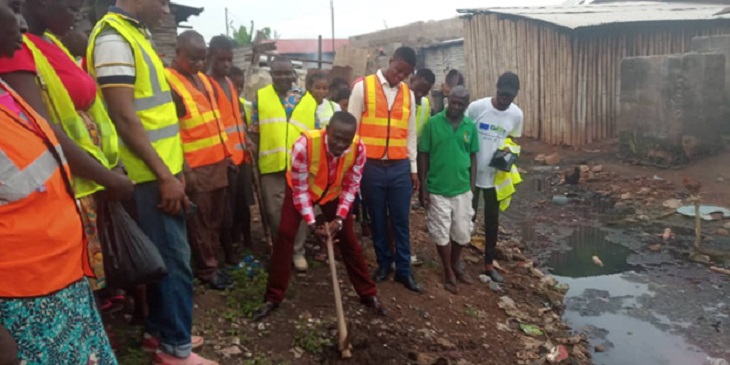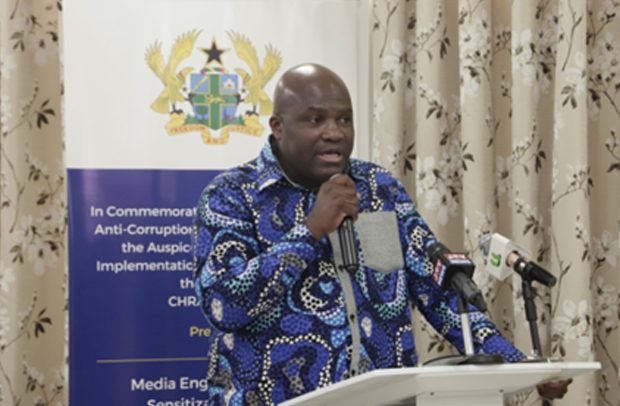
Axim — The National Commission on Civic Education (NCCE) of the Nzema East Municipality has held a community durbar to sensitise the citizens about accountability, rule of law and anti-corruption.
It forms part of planned action under the Accountability, Rule of Law and Anti-Corruption Programme (ARAP).
The objective of ARAP is to promote good governance in Ghana by reducing corruption and improving accountability and compliance with the rule of law. Under ARAP, the NCCE is required to campaign, advocate and lobby for increase in accountability and reduction in corruption in Ghana.
The Municipal Director of the Commission on Human Rights and Administrative Justice (CHRAJ) in the Nzema East Municipality, Nana Fosuwa Odoom, said corruption was high on every agenda in the country.
She could not believe a situation where a newly constructed bridge could be easily washed away by water within a short period after completion.
She told the participants that there was total confidentiality on any information volunteered by a whistle blower, so people should not be afraid to go to the Auditor General, the Police, CHRAJ, EOCO or any relevant institution to report a known corrupt practice, adding "your information must be authentic with relevant supporting evidence and possible witnesses".
Nana Odoom said any staff transferred, sacked or victimised because the person reported corrupt practices of management would be reversed and CHRAJ would come in to investigate the case leading to the employee's transfer or whatsoever.
She said, if a whistle blower's life was at stake because of a report, government would come in and support by giving the person security, and that person was entitled to 10 per cent from the whistle blower fund.
The Municipal Director indicated that all cases of corruption must be tackled by all citizens, so there was an urgent need for more Ghanaians to volunteer information about people perceived to have done something leading to corruption.
She told the people to make noise about corrupt people on the local radio stations to disgrace corrupt officials, so that corruption would drastically be reduced.
The Environmental and Sanitation Officer at the Municipal Health Directorate, Mr Kwabena Dramani, disclosed that assembly members in-charge of certain projects, like toilets, were not accountable to the electorate, but pay the money direct to the assembly.
He noted that economic and human development could not be sustained, if the ecosystem on which man depended on was irreparably damaged, pointing out that, citizens were failing to govern and protect their environment, which was causing environmental related diseases such as measles, dipthteria, pertussis, mumps, rubella, pulmonary tuberculosis and others.
The Municipal Director of NCCE, Mr Bernard Azonawane, said voting was not compulsory, but it was a civic and constitutional duty for every citizen to vote during public elections, and appealed to all citizens to actively participate in the coming district assembly elections.
He said parliament was in the process to amend Article 55 (3) of the 1992 Constitution to pave the way for the election of Metropolitan, Municipal and District Chief Executives (MMDCEs), adding that the elections of MMDCEs would assist in providing accountability, good governance, transparency and also ensure that corruption was minimised or reduced.
Read Full Story





























Facebook
Twitter
Pinterest
Instagram
Google+
YouTube
LinkedIn
RSS